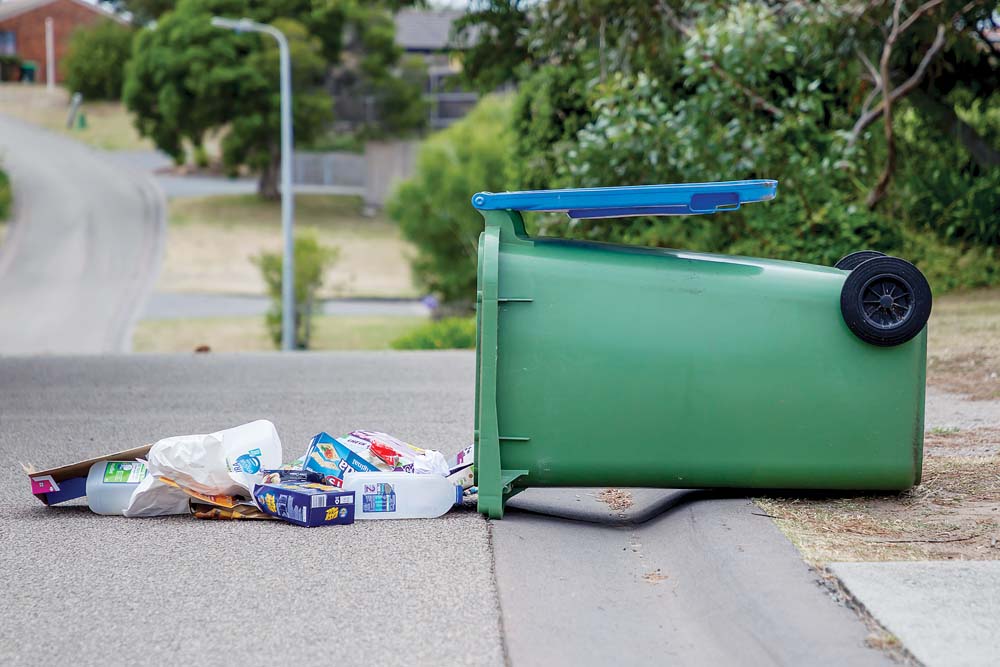Recycled material collected by Mornington Peninsula Shire is set to resume being “processed” instead of being taken to landfill.
Bans on the shire’s recycling processor SKM were lifted late last month and infrastructure services executive manager Jessica Wingad was late last week hoping to have “an update and timeframe for when our recycling will start to be processed again in the coming days”.
“Once our recycling processing resumes, the shire will be able to confirm the total quantity of recyclable material sent to landfill as a result of the shutdown,” she said.
The recycling processor was unable to take waste from the shire because of dangerous stockpiling in the wake of China’s refusal to take more waste plastic from Australia.
However, the announcement of SKM returning to normal services comes at the same time that India has banned waste from Australia.
India, Indonesia, Vietnam and Malaysia helped reduce the impact of China’s ban by accepting more of Australia’s recyclable rubbish.
Further problems in dealing with recyclables are now likely with India’s decision, and Malaysia and Thailand saying they won’t take plastic waste imports by 2021.
These changes by Asian nations puts further pressure on Australian governments to process recyclables onshore.
Meanwhile, the mayor David Gill wants peninsula residents to join a campaign to reduce e-waste.
The statewide campaign by Sustainability Victoria is aimed at reducing the amount of electronic waste (e-waste) being sent to landfill. From 1 July 2019, all e-waste must be taken to dedicated drop off centres.
E-waste – defined as being any item with a plug, battery or cord – is the fastest-growing category of waste worldwide. More than one million mobile phones and 16 million TVs are discarded in Australia every year. It is estimated that just for televisions and computers, the amount of e-waste generated in Australia will grow from around 138,000 tonnes in 2012-13 to 223,000 tonnes in 2023-24.
“With today’s unprecedented pace in technology upgrades, we are unfortunately living in an increasingly disposable age where even large ticket electrical items are discarded with far greater frequency than a generation ago,” Cr Gill said.
“This reduced product life span and our tendency to either hoard or throw out these products with the regular rubbish, is having a devastating impact on landfill.”
Cr Gill said many e-waste items contain hazardous ingredients such as lead, mercury, phosphor, arsenic, fluids and refrigerants.
“If disposed of inappropriately, these materials can leach into groundwater and soil, or release into the air, creating long term contamination issues and human health issues,” he said.
Materials such as copper, silver palladium and gold could be recovered.
“In fact, 90 per cent of e-waste is recyclable, it just has to be taken to the right place.”
For details of the nearest drop off centre for e-waste go to ewaste.vic.gov.au or contact the shire.
First published in the Southern Peninsula News – 2 April 2019




